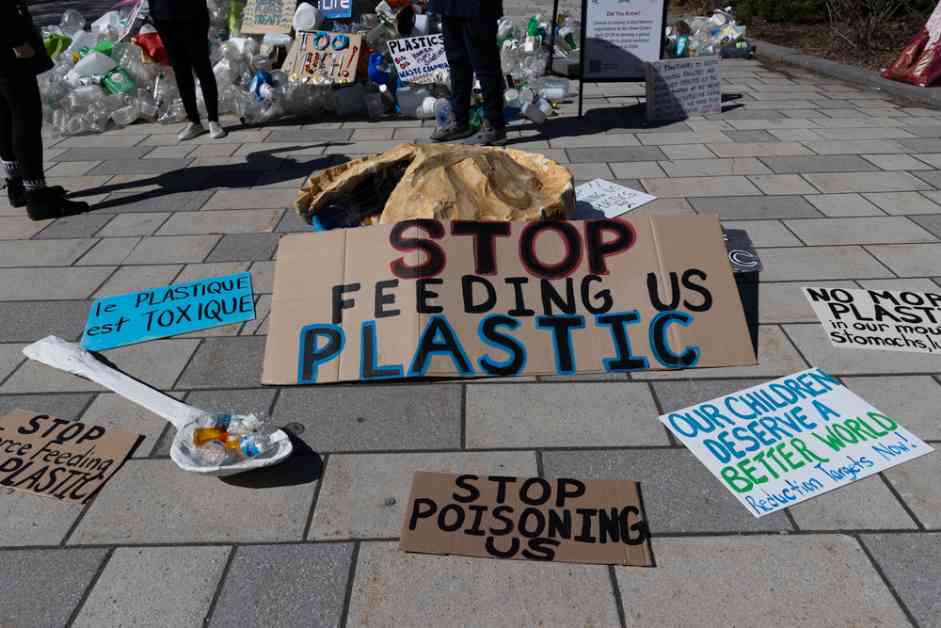Global Plastics Pact at Risk as Petrostates Stall Negotiations
Major fossil fuel-producing countries are under fire at negotiations in Busan for resisting restrictions on plastic manufacturing, a critical market for oil and gas. As discussions on a new global treaty to combat plastic pollution reach the midway point in Busan, South Korea, tensions escalated during a heated plenary session on Wednesday due to the lack of substantial progress on key elements of the pact, including potential limitations on plastic production.
Negotiators and observers revealed that some fossil fuel-producing nations, notably Saudi Arabia, Russia, and Iran, have consistently hindered the talks. These countries are against incorporating provisions on plastic manufacturing in the treaty and prefer focusing solely on managing consumption and waste. Amidst the frustrations, the slow pace of negotiations sparked complaints from countries advocating for a robust agreement, with diplomats accusing their counterparts of obstructing discussions and lacking sincerity.
Stalling Tactics and Accusations
During the plenary session, Colombia’s negotiator highlighted the delays in discussions, while Switzerland’s delegate criticized the lack of constructive dialogue among participants. Panama’s special representative for climate change, Juan Carlos Monterrey Gomez, passionately denounced negotiators for evading the truth and skirting ambitious goals, emphasizing the urgent need for a strong treaty to protect the planet and its inhabitants.
In response to the accusations, Iran’s negotiator defended their stance, emphasizing sincerity and readiness for cooperation. Russia and Saudi Arabia also refuted the allegations, hinting at potential irregularities and ambiguities in the negotiation process.
Challenges and Deadlock
As the talks entered the final round, diplomats have yet to reach a consensus on addressing plastic pollution across the material’s entire lifecycle, from production to disposal and recycling. The debate over production curbs remains a major sticking point, with a coalition of nations advocating for limits on plastic manufacturing to combat pollution effectively.
With plastic production projected to rise significantly in the coming years, concerns about its impact on greenhouse gas emissions and the climate crisis have intensified. Despite the urgency to curb production and consumption, some oil-producing countries fear economic disruptions and trade restrictions if such measures are implemented.
Call for Action and Resolution
Environmental advocates and campaigners are urging ambitious states to stand firm and push for meaningful changes in the treaty to address plastic pollution effectively. Amidst the ongoing negotiations and looming deadlines, the fate of the Global Plastics Pact hangs in the balance, with hopes pinned on a comprehensive deal capable of delivering significant change.
As the talks continue behind closed doors, the pressure mounts for negotiators to bridge their differences and finalize an agreement that addresses the critical issue of plastic pollution. The world watches closely as the fate of the Global Plastics Pact rests on the decisions made in the coming days.














